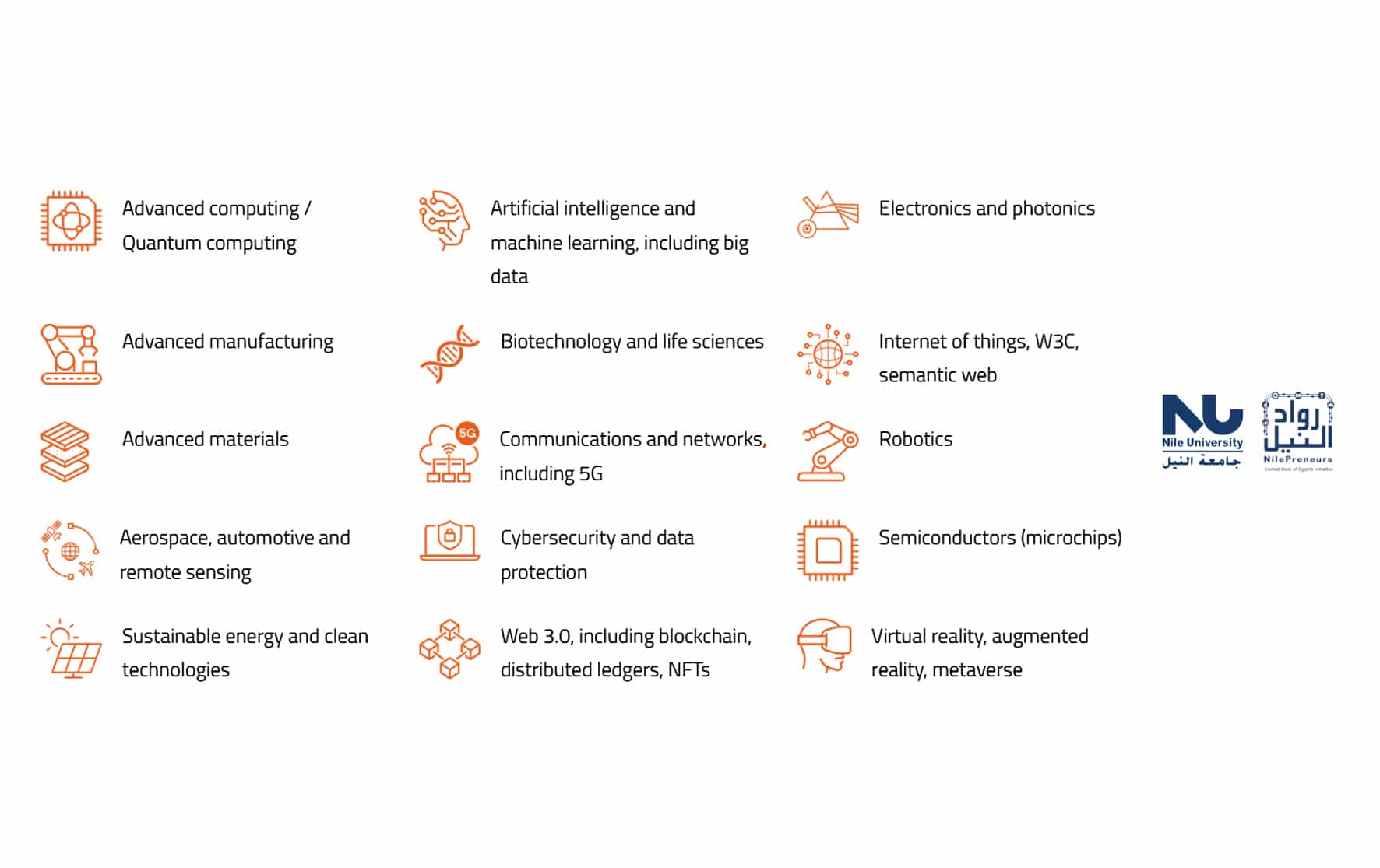Get ready for a big wave of innovation! It’s coming soon, thanks to new technologies and deep tech entrepreneurs. This wave will affect our economy, businesses, and society in many ways because deep tech ventures want to solve our toughest problems.
In 2020, global investments in the deep tech sector amounted to nearly $76.7 billion. By the first 8 months of 2021, this number had already surpassed $78 billion. Venture capital funding for deep tech companies and startups is experiencing robust growth. However, it still constitutes a small fraction of total venture capital investments, despite the substantial investments resources deep tech endeavors demand.
What Is Deep Tech
Deep tech, also known as deep technology or hard tech, refers to companies—typically startups—whose business models are based on high-tech innovation or significant scientific advances. These ventures focus on developing new products rooted in substantial scientific or engineering challenges. Unlike shallow tech innovations (such as mobile apps or e-commerce services), deep tech solutions require extensive research, development, and substantial capital investment before successful commercialization.
The significant wave encompasses various advanced technologies such as artificial intelligence (AI), synthetic biology, nanotechnologies, and quantum computing, among others. However, what’s even more important are the intersections of these technologies and approaches that will speed up and redefine innovation for many years to come.
As technological advancements transition from laboratories to the marketplace, and as companies emerge to pursue commercial applications, we notice several similarities in how and why they are being developed. A robust ecosystem is forming to propel their progress. We witnessed the potency of this ecosystem in the past year as Moderna and the team of BioNTech and Pfizer independently brought two COVID-19 vaccines from genomic sequence to market in less than a year. While these companies accomplished remarkable feats at an unprecedented pace, they were supported by the efforts of many others, including governments, academia, venture capital, and large corporations. All these entities are vital players in the forthcoming wave.

Source : https://eit-hei.eu/deep-tech/
Overview of Deep Technology Innovation Impact Across Industries
Deep technology innovations have experienced widespread adoption and enhancement driven by various megatrends, including demographic shifts, global climate change, and resource scarcity, among others, alongside significant advancements in scientific research across diverse sectors.
According to the BCG report, among the foremost universal innovations prominently utilized across multiple industries are AI and Big Data. This surge in deep tech has notably fueled advancements in sectors such as Healthcare, as well as Mobile & Telecommunications.
Conversely, Augmented/Virtual Reality (AR/VR) emerges as the least extensively employed technology, with relatively limited integration observed in industries such as Automotive & Transportation, Consumer Products & Services, and Healthcare.
What Sets Deep Tech Apart
Now that you’ve grasped the essence of deep tech and its primary fields of application, let’s delve into what makes this domain distinctly transformative.
Firstly, deep tech startups typically necessitate substantial, long-term investments and extensive research into specific problems. Achieving commercial success in such projects often requires a longer time frame due to the disruptive nature of the technologies they develop, a departure from the timelines seen in general tech and high-tech sectors.
However, the upside lies in the significant rewards that deep tech startups can yield. The innovative products they create not only have the potential to establish new industry standards but also pose formidable challenges for competitors. Furthermore, deep tech solutions have the capability to diminish the relevance of existing products or businesses, rendering them highly appealing to large corporations.
A prime illustration of this dynamic is blockchain in the fintech sector. Essentially, it offers heightened security for global transactions, facilitating faster, easier, and entirely secure banking processes for consumers.
As a result, blockchain has the potential to disrupt outdated business models of uncompetitive banks with inefficient performance and high fees, while bolstering the competitive edge of institutions that embrace it to optimize system performance.
Fundamental Characteristics of Deep Tech companies
Deep tech companies typically represent entities that have garnered significant recognition, either through established brand names, prolonged public attention, or a focused dedication to intricate fields understood by only a select few. These entities consistently assemble a diverse array of technological experts, scientists, engineers, and entrepreneurs to address multifaceted, large-scale challenges.
Centered on tackling issues that existing technologies cannot adequately address, deep tech firms invest in pioneering technological solutions poised for significant breakthroughs within their respective industries or even across multiple sectors simultaneously.
What sets deep technology ventures apart from their counterparts? Here’s a concise overview of their distinguishing features
1.Intense focus on resolving pressing global issues: Deep tech startups are driven by a mission to solve the world’s most pressing problems. Nearly all (97%) of them contribute to at least one of the UN’s sustainable development goals, ensuring that these cutting-edge innovations benefit society.
2.Fusion of multiple technologies and innovative methodologies: Unlike traditional high-tech or general tech firms that often rely on pre-existing solutions, deep tech ventures pioneer technology development from inception. Moreover, they frequently integrate cutting-edge, interdisciplinary technologies to tackle complex problems. According to BCG, 96% of deep tech ventures harness at least two technologies and over two-thirds (66%) use advanced technologies. Additionally, around 70% of these ventures have patents for their innovative technologies
3.Development of solutions for tangible challenges: Most (83%) of deep tech ventures within the deep tech realm are committed to advancing both digital and physical innovations, leveraging technologies such as AI and machine learning to revolutionize sectors like chemistry, agriculture, and beyond.
4.A Collaborative Network: Deep tech doesn’t happen in a vacuum. These ventures thrive within a complex ecosystem that requires significant resources and investment. Universities, research labs, and governments all play a crucial role. Around 1,500 universities and research institutions contribute to deep tech initiatives, and governments awarded an estimated 1,500 grants to these ventures in just one year (2018).
Despite constituting a minority among startups, deep tech companies wield substantial influence across various sectors today. Their contributions are often hailed as forward-thinking and practical, harboring immense potential for addressing significant societal challenges on a grand scale.
Working together
Nilepreneur is a deep-tech venture builder, specializing in empowering early-stage startups and innovators. Their team of experts acts as your technology co-founder, providing guidance through every stage of your journey:
- Product Development: Nilepreneur can help you refine your Deep Tech concept into a market-ready product.
- Market Strategy: They’ll assist you in crafting a winning strategy to reach your target audience.
- Funding Access: Nilepreneur leverages its network to connect you with potential investors and bridge the Deep Tech investment gap.
Their mission aligns perfectly with the vision of a thriving knowledge economy fueled by Deep Tech innovation.
recognizes the potential of various Deep Tech domains, with a particular focus on these exciting areas:
- Edtech: Revolutionizing education through technology for a more accessible and personalized learning experience.
- Biotech: Harnessing the power of biology to create solutions in healthcare, agriculture, and more.
- Consumer IoT: Integrating the Internet of Things (IoT) into everyday devices to improve our lives.
- Agritech: Developing innovative technologies to optimize agricultural practices and ensure food security.
- AI: Leveraging the power of artificial intelligence to solve complex problems across various industries.




